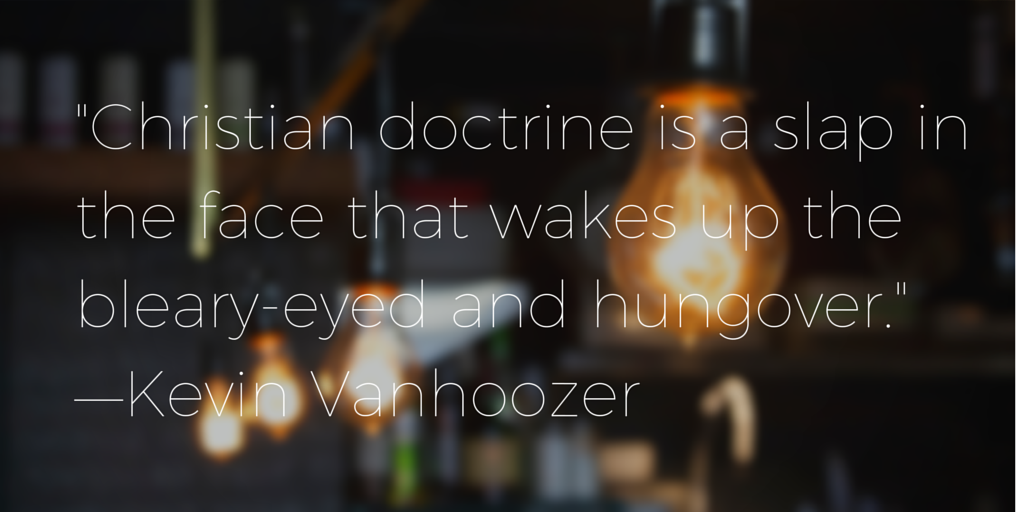I wildly vacillate from working like crazy to crashing. I cram, I take a break. And, since the semester is upon me, I face the temptation to fall back into this maddening dialectic of thrashing back-and-forth between expending more energy than I have, and resting more than I can afford. It’s the perfect recipe for burnout and addiction, and I turn into a sad, desperate being when I burn out and seek self-medicating pleasures. David Powlison gives a helpful description and cure (if we are willing to take it) for this kind of life.
Some people are wildly ‘bipolar’ but don’t know it. I’m not referring to mood swings. I’m referring to those extreme swings from obsession about work, to compulsive pleasure-seeking, then back to anxious toil, then back to “you-deserve-a-break-today.” That cycle isn’t measured in months or years. Many people cycle through every single day, even several times a day. One hour they’re preoccupied, harried, driven. The next hour they’ve escaped into the forgetful all-absorption of entertainment.
They don’t stop to take a deep breath, to quietly think, to savor something beautiful, to notice and listen carefully, to participate in both the seriousness and the humor of honest friendship, to choose well. Workaholics never cast their cares on someone who cares, but always carry their world’s burdens. Pleasure-addicts never feel or express gratitude for good things they have been given to enjoy. They clutch pleasures as their divine right. It’s a fair bet that at least 99 percent of humankind operate somewhere between mildly dysfunctional and completely crazed on this issue.
In moving beyond this mad cycle, Powlison turns toward God, the highest work and pleasure:
This highest pleasure involves you intimately with God: “The dwelling place of God is with man. He will dwell with them, and they will be His people” (Rev. 21:3). You live face to face with the person you most love, who most loves you, whose face is your supreme delight. This shared safety and joy—no pain, threat, loss (Rev. 21:4)—is pure pleasure.
God portrays what is beautiful, delightful, and desirable in order to make clear the contrast. In comparison, that typical bipolar swing looks ugly, tiresome, impoverished, dehumanizing. It profanes the glory of God and profanes the image of God, by perverting both work and pleasure. Your time “on” gets deformed into a rat race of responsibilities. Your time “off” gets deformed into a carnival of amusements. Both are restless. But God gives rest to His beloved.
What does it look like to rest in God in a way that helps us begin to overcome the cycle of work-addictions and pleasure-addictions? Start small.
Pick a little thing that just gets too much of a mastery over you, and so loses its innocence. Take a one week fast from this. View this week as a holy experiment. It is an opportunity to get to know yourself, your God’s mercy, and the intensity of the battle with evil, even in seemingly minute skirmishes that most people never imagine are important. For example, take a one week time-out from one of the following:
- browsing catalogues
- checking your e-mail or the weather more than twice a day
- reading novels
- playing games or doing puzzles
- background music or talk radio
- TV (or even just your favorite show, or the evening news)
- your hobby
- chatty phone calls, text-messaging, instant-messaging
- recreational shopping
- snacks between meals
- films
- or any other thing that becomes an obsessive habit and need!
What happens when you do this?
You struggle. You try not to check your e-mail eighteen times a day. Sounds easy enough. But it’s not as easy as we imagine. The first time you don’t do it, you think, “I want to do it. I need to do it. I can’t give this up.” It turns out that it actually does have a hold on you. Such things don’t let up their grip just because you planned a week-long break. Remnant sin is a power, a living thing, like a snake in your heart. And living things don’t just lie down and give up.
You realize you need Jesus’ mercy and help. Amazing. Something as small as a one week fast from a dinky part of life—e-mail, film, talk radio, drinking a Coke—and you need the Savior of the world. You realize how strong and deceitful your lusts are.
You realize you’ve been medicated and strung along by your little guilty pleasure. In these microbattles for your heart, you actually need strong, radical medicine: “Come to the throne of grace. I will give you mercy and grace to help you in your time of need.” This battle is about ownership of my heart: Who will I love? My time of need is right now. He cares and will help. Your faith awakens from captivity, torpor, and drift. You need Jesus. You love Jesus. You are thankful to your most kind God of all comfort and Father of all mercies.
Work is good, and so is pleasure. But they can be twin idols that expend our hearts’ resources so that we have neither the energy, nor the time for either. I pray that we can heed Powlison’s warning, and that God would give us the humility to look at our iPhones one less time today. And, ultimately, I pray that we will all begin another semester with the healthier, and more grace-centered mindset that Powlison prescribes.











